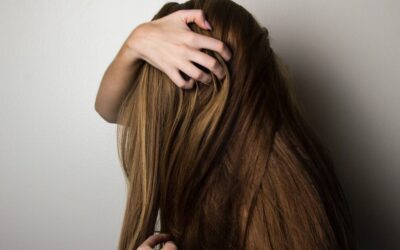Hair loss is not just a problem for middle-aged men and women. It also affects some teenagers. In fact, the onset of certain hair loss conditions is during the teenage years. Furthermore, some teen boys may display early signs of balding such as a thinning crown or receding hair line because of their genetic predisposition.
Just like adults, teenagers may have a tough time coping with hair loss. One reason for this is that they are at a stage wherein they are just starting to develop their self-image. Losing their hair can lead to a negative perception of themselves which can cause low self-esteem. So, if your teenager is experiencing hair loss, it is important that you seek help from a dermatologist or trichologist for proper diagnosis and immediate treatment.
Common Causes of Hair Loss in Teens
Teenagers may lose hair due to different reasons. Below are some of the most common causes of hair loss in teens.
Poor Nutrition
It is not uncommon for teens to have unhealthy food choices. Some of them may even have unhealthy eating habits, going on extreme dieting to achieve or maintain their target weight. Both practices may lead to nutritional deficiency which can affect the health of their hair. Hence, it is imperative that your child get sufficient amount of nutrients for normal hair growth to take place.
Hair Styling and Treatments
Teenagers are at a stage wherein they are overly conscious about how they look. Girls in particular may often put on styling products, undergo hair treatments and use tools like hair dryer or curling iron. The thing is, these products, treatments and devices can harm the hair when used excessively and cause them to eventually fall off.
Similarly, frequently tying the hair too tight and wearing hair extensions may lead to traction alopecia. In this condition, the constant pulling on the hair causes tension on the scalp that eventually results in hair breakage. In the long run, hair follicles may become damaged leading to patches of bald spots.
When it comes to traction alopecia, eliminating the cause such as wearing hair extensions or tight hairstyles can stop hair loss. However, consulting a hair and scalp specialist is still highly recommended to determine the extent of the problem and to administer the best treatment plan.
Disruption of Normal Hair Growth Cycle
Your child may be experiencing excessive hair loss because the normal hair growth rhythm is disrupted. Why does this happen? There are several stressors that trigger this problem – serious illness, surgery, extreme stress and excessive weight loss, among others. Oftentimes, the excessive hair loss happens months after the trigger was experienced.
The good news is that this is usually a temporary condition. Once the stressor is eliminated or when the body recovers, the normal hair growth cycle gets restored and the excessive shedding of hair stops.
Trichotillomania
This is a disorder wherein a person repeatedly pulls out his or her hair. This habit leads to bald patches as well as hair of different lengths. There is nothing definitive as to what’s causing people to do this, but stress is believed to be one of the triggers. This disorder initially manifests during puberty.
Your child needs therapy to overcome trichotillomania. Otherwise, the disorder may progress to something more severe such as your child eating the pulled-out hair. He/She may also need treatment to address bald spots and strengthen the hair.
Medical Conditions
Medical conditions like thyroid disease, diabetes and polycystic ovary syndrome (PCOS) may result in hair loss. This is why, dermatologists conduct medical tests to determine whether the hair problem is due to a medical problem or not. If the culprit behind your child’s hair loss is a medical condition, curing or resolving the illness is the key to preventing further loss of hair.
Alopecia Areata
Alopecia areata is typically characterised by smooth and round patches of bald spots on the scalp. The exact cause of this condition is still unknown, but experts think that it may be brought about by the immune system attacking the hair follicles. The onset of this condition usually happens during the teenage years.
There is no cure for alopecia areata, but there are medicines which can help promote hair growth on the affected areas. Typically, the problem gets resolved on its own with hair growing back after several months. However, alopecia areata is a recurring condition which means that your child may lose his or her hair even after recovery. If you suspect that your child is suffering from alopecia areata, consult a specialist right away since early treatment is integral in successfully managing this condition.
Want to know more about what causes hair loss in teenagers? Call us at (0)1 6793618 and schedule an appointment with our dermatologist.



